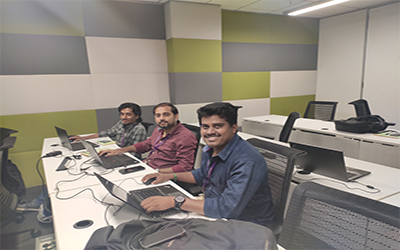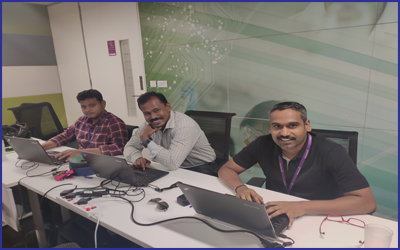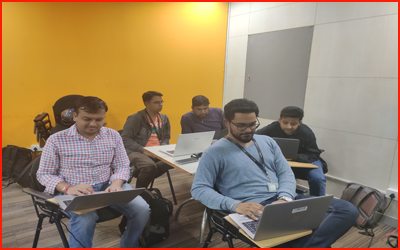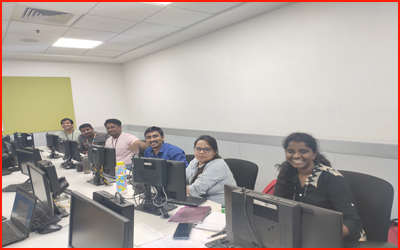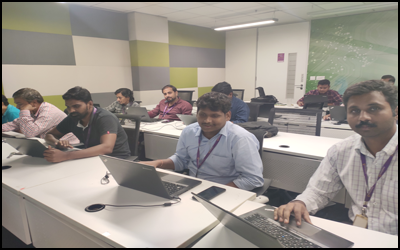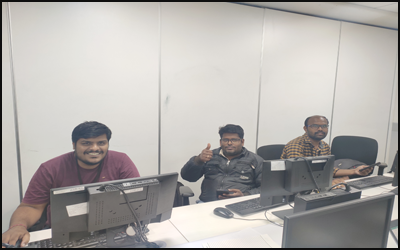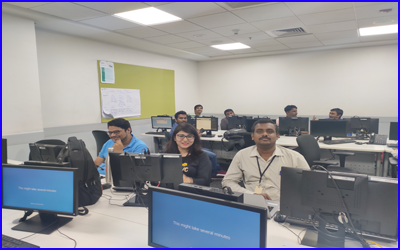Microservices and Containers Training and Certification Course
4,999/-

24,999/-
Microservices and Containers Live Class - Corporate Training
Agenda
Duration
What is Microservices?
Microservices is an architectural style for designing and developing software applications as a collection of loosely coupled, independently deployable services. Each microservice is a small, self-contained unit that focuses on a specific business function or capability, and communicates with other services through well-defined APIs, typically over HTTP or messaging protocols. This approach contrasts with traditional monolithic architecture, where all functionalities are tightly integrated into a single, large application.Microservices offer several benefits, including improved scalability, as services can be scaled independently based on their specific needs; greater flexibility, allowing different teams to develop, deploy, and maintain services independently; and enhanced resilience, as failures in one service do not necessarily impact the entire application. By promoting modularity and the use of diverse technologies, microservices facilitate continuous delivery and deployment, enabling more frequent updates and faster adaptation to changing business requirements. However, managing a microservices architecture can be complex, requiring robust service orchestration, monitoring, and security measures to handle the distributed nature of the system.
What is Containers?
Containers are a lightweight, portable, and self-sufficient unit of software that encapsulates an application and its dependencies, including libraries and configuration files, into a single package. They allow applications to run consistently across different computing environments, such as development, testing, and production, by providing a standardized runtime environment. Unlike virtual machines, which virtualize entire operating systems, containers share the host system's operating system kernel but maintain isolated user spaces, making them more efficient in terms of resource usage and startup times. Containers are designed to be easily deployable and scalable, enabling rapid and reliable application deployment across various platforms. They are commonly used in conjunction with container orchestration tools like Kubernetes, which manage the deployment, scaling, and operation of containerized applications across a cluster of machines. Containers are a key component of modern DevOps practices and cloud-native applications, facilitating continuous integration and continuous delivery (CI/CD) by allowing developers to package and distribute applications in a consistent and reproducible manner.
Participants Feedback/Reviews

Abhinav Gupta, Pune
(5.0)The training was very useful and interactive. Rajesh helped develop the confidence of all.

Indrayani, India
(5.0)Rajesh is very good trainer. Rajesh was able to resolve our queries and question effectively. We really liked the hands-on examples covered during this training program.

Ravi Daur , Noida
(5.0)Good training session about basic Microservices and Containers concepts. Working session were also good, howeverproper query resolution was sometimes missed, maybe due to time constraint.

Sumit Kulkarni, Software Engineer
(5.0)Very well organized training, helped a lot to understand the Microservices and Containers concept and detailed related to various tools.Very helpful

Vinayakumar, Project Manager, Bangalore
(5.0)Thanks Rajesh, Training was good, Appreciate the knowledge you poses and displayed in the training.

Abhinav Gupta, Pune
(5.0)The training with DevOpsSchool was a good experience. Rajesh was very helping and clear with concepts. The only suggestion is to improve the course content.
